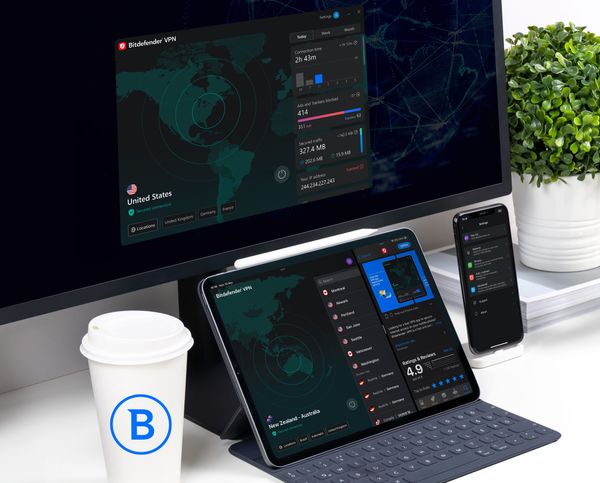Everything You Need to Know About Geoblocking

Geoblocking is the practice of denying access to certain websites and services to users from specific locations, usually based on the user's IP address or country.
The reasons for these restrictions can include copyright protection, political sensitivities, and outright censorship. Unfortunately, this often means that content isn't accessible even if the user is well within their rights to access it.
Streaming platforms: geoblocking pioneers
Geoblocking has become common on the internet, partly due to the rise of streaming services such as Netflix and Hulu.
These companies, and others like them, enforce geoblocking to determine which countries have access to certain titles or other media due to licensing agreements they've made with producers or distributors. Different regions might have different versions of an episode or even entire TV shows that no one else can see.
More than just streaming services are getting into geoblocking, however. Video game publishers also use it to prevent users from accessing different versions of their games in various countries and regions. For example, some games will only be available in North America, while other territories like Europe and Asia may get altered versions or, worse, not receive them at all.
VPNs and geoblocking
There is hope for those affected by geoblocking - using a Virtual Private Network (VPN) service such as Bitdefender VPN. By connecting to a VPN server in another country, users can change their IP address and "trick" websites into thinking they're elsewhere, allowing them access to geo-restricted services.
Trustworthy VPNs also provide an added layer of privacy for users, as websites won't be able to monitor and track your online activities - making sure nobody sees your data without your permission.
Political discrepancies and Internet censorship
Politically-motivated geoblocking has also become a significant issue in recent years, as governments worldwide increasingly take steps to control the flow of information and restrict access to specific websites. In some cases, this means outright banning access to some sites or online services - often for reasons related to national security or other political motives.
In more extreme cases, it can mean blocking content from entire countries, such as China's “Great Firewall,” which restricts access to information about topics the government deems sensitive. Other countries have similar restrictions, although they may not be as widespread as those in China.
Not just governments engage in politically-motivated geoblocking though - private companies also do it sometimes to comply with local laws or avoid unwanted attention from authorities.
Thankfully, VPNs can help in these situations, too - by letting users connect to a server outside their own country's jurisdiction to access sites and services that are otherwise blocked due to political pressure.
This means users can stay informed without having their traffic monitored or censored by their government - which is becoming crucial in today's digital age.
VPNs are well-equipped against geo-restrictions
In conclusion, although geoblocking is increasingly common, there are certain ways to dodge these unfair restrictions. A VPN is by far the most popular choice in this scenario as it can help you avoid geo-restrictions while protecting your privacy at the same time.
tags
Author

Vlad's love for technology and writing created rich soil for his interest in cybersecurity to sprout into a full-on passion. Before becoming a Security Analyst, he covered tech and security topics.
View all postsRight now Top posts
How to Protect Your WhatsApp from Hackers and Scammers – 8 Key Settings and Best Practices
April 03, 2025
Outpacing Cyberthreats: Bitdefender Together with Scuderia Ferrari HP in 2025
March 12, 2025
Streamjacking Scams On YouTube Leverage CS2 Pro Player Championships to Defraud Gamers
February 20, 2025
How to Identify and Protect Yourself from Gaming Laptop Scams
February 11, 2025
FOLLOW US ON SOCIAL MEDIA
You might also like
Bookmarks








